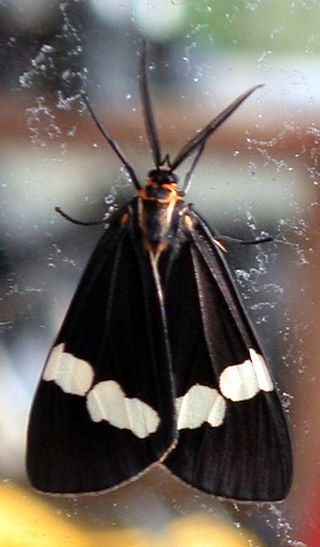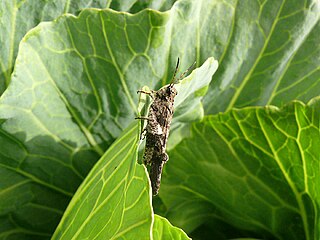
The banded cat-eyed snake is a species of mildly venomous, rear-fanged, colubrid snake, endemic to the New World.

The Ethiopian dwarf mongoose, also known as the desert dwarf mongoose or Somali dwarf mongoose, is a mongoose native to East Africa, particularly Ethiopia, Kenya, and Somalia.

Theileria is a genus of parasites that belongs to the phylum Apicomplexa, and is closely related to Plasmodium. Two Theileria species, T. annulata and T. parva, are important cattle parasites. T. annulata causes tropical theileriosis and T. parva causes East Coast fever. Theileria species are transmitted by ticks. The genomes of T. orientalis Shintoku, Theileria equi WA, Theileria annulata Ankara and Theileria parva Muguga have been sequenced and published.

The brown wood turtle or brown land turtle is a species of turtle in the family Geoemydidae. The species is endemic to Central America and northern South America.

Trithemis annulata, known commonly as the violet dropwing, violet-marked darter, purple-blushed darter or plum-coloured dropwing, is a species of dragonfly in the family Libellulidae. It is found in most of Africa, in the Middle East, in the Arabian Peninsula and southern Europe. These insects are called dropwings because of their habit of immediately lowering their wings after landing on a perch. Males of this species are violet-red with red veins in the wings while females are yellow and brown. Both sexes have red eyes.

Naja annulata, commonly known as the banded water cobra or the ringed water cobra, is a species of water cobra native to western and central Africa.

The bandy-bandy, also commonly known as the hoop snake, is a species of venomous snake in the family Elapidae. The word bandy-bandy (bandi-bandi) traces back to the indigenous dialect of Kattang, from the Taree region, New South Wales. There are 5 known species of bandy-bandy, all of which are endemic to Australia.

Nyctemera annulata, the magpie moth, is a moth of the family Erebidae. The species was first described by Jean Baptiste Boisduval in 1832. It is endemic to New Zealand and found in all parts of the country.

Naja christyi, commonly known as the Congo water cobra or Christy's water cobra, is a species of venomous snakes belonging to the family Elapidae. The species is native to Sub-Saharan Africa.

Bartholomea annulata is a species of sea anemone in the family Aiptasiidae, commonly known as the ringed anemone or corkscrew anemone. It is one of the most common anemones found on reefs in the Caribbean Sea.

Eucalyptus annulata, commonly known as the open-fruited mallee or prickly -fruited mallee, is a mallee that is native to Western Australia.
Djokoiskandarus is a genus of snake in the family Homalopsidae that contains the sole species Djokoiskandarus annulata. It is commonly known as the banded water snake.

Thaumatomyia annulata is a species of grass fly in the family Chloropidae.

Limonia annulata is a species of limoniid crane fly in the family Limoniidae.
Ablabesmyia annulata is a species of midge in the family Chironomidae.
Macromia annulata, the bronzed river cruiser, is a species of cruiser in the family of dragonflies known as Macromiidae. The species is native to the Mexican states of Nuevo León and San Luis Potosí and the American states of New Mexico and Texas.
Pronotacantha annulata is a species of stilt bug in the family Berytidae. It is found in Central America and North America.

Trilophidia is a genus of grasshoppers in the family Acrididae, subfamily Oedipodinae and the only member of the tribe Trilophidiini. The recorded distribution of species is from Africa and the middle-East through to Japan and Malesia.
Parvaverrucosa is an insect genus in the extinct, monotypic family Parvaverrucosidae, of the order Hemiptera. It contains the monotypic species Parvaverrucosa annulata known from the Cenomanian aged Burmese amber of Myanmar. First described in 2005, the genus was redescribed in 2019, which found it to be in the superfamily Palaeoaphidoidea














